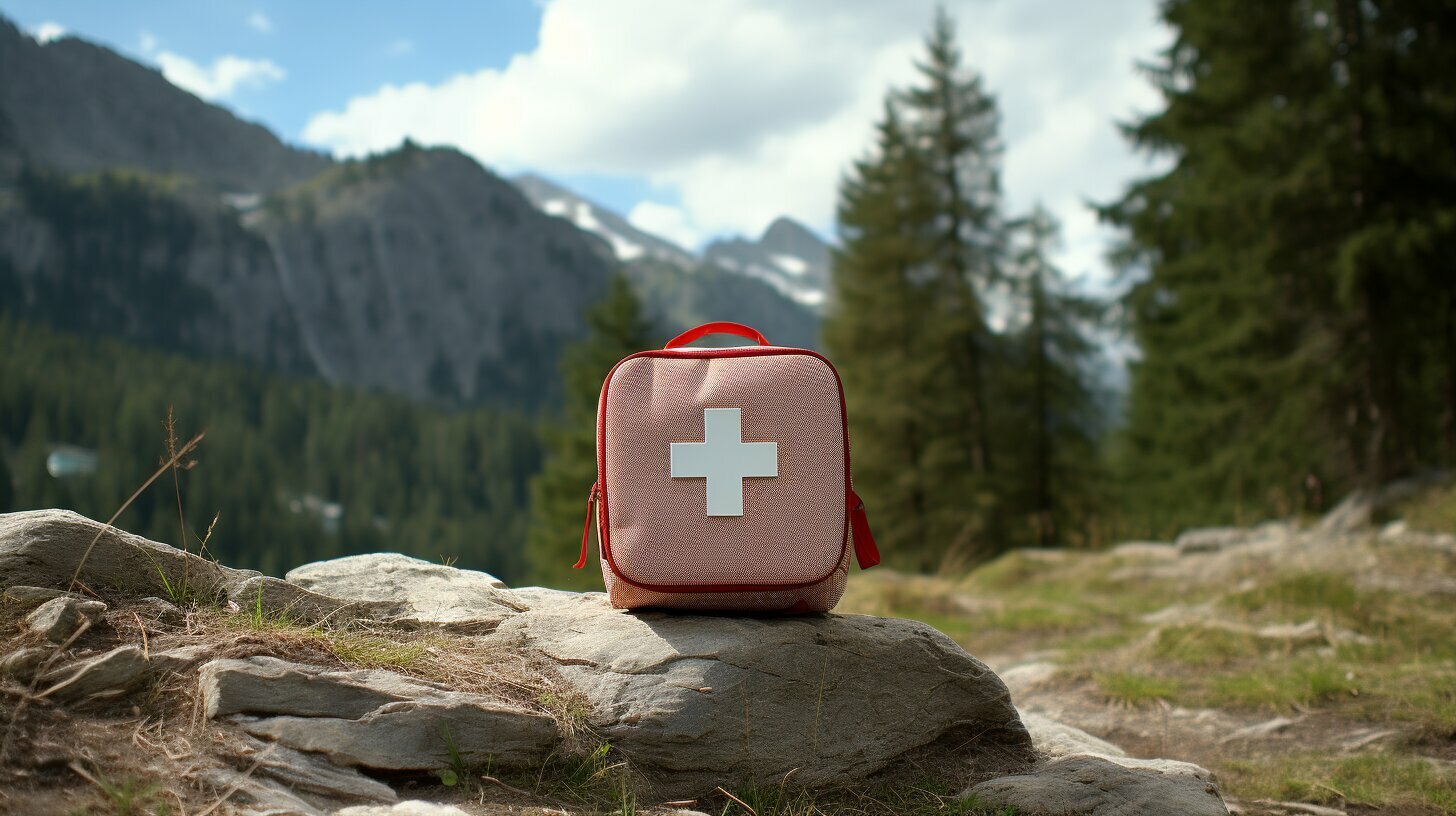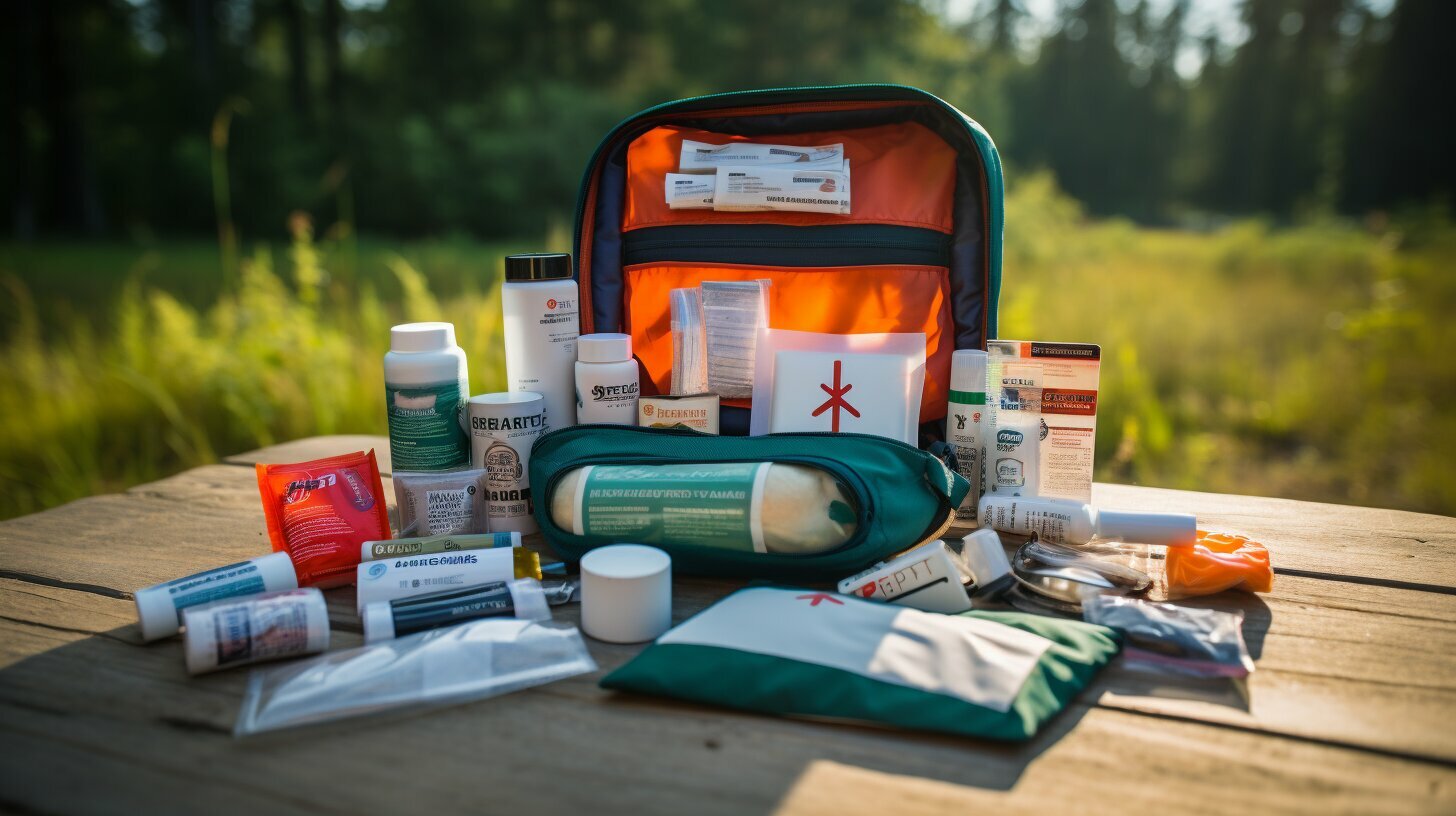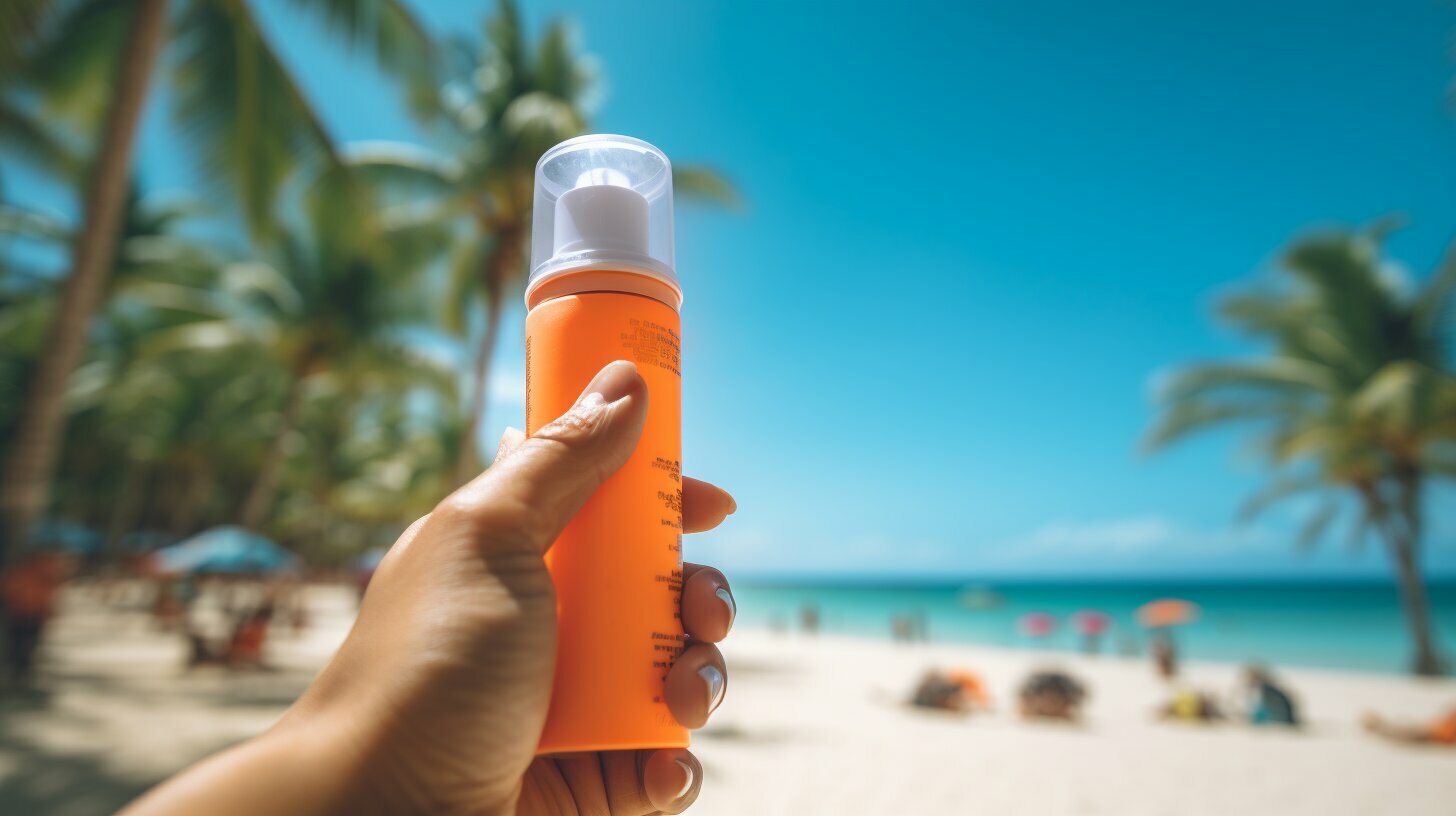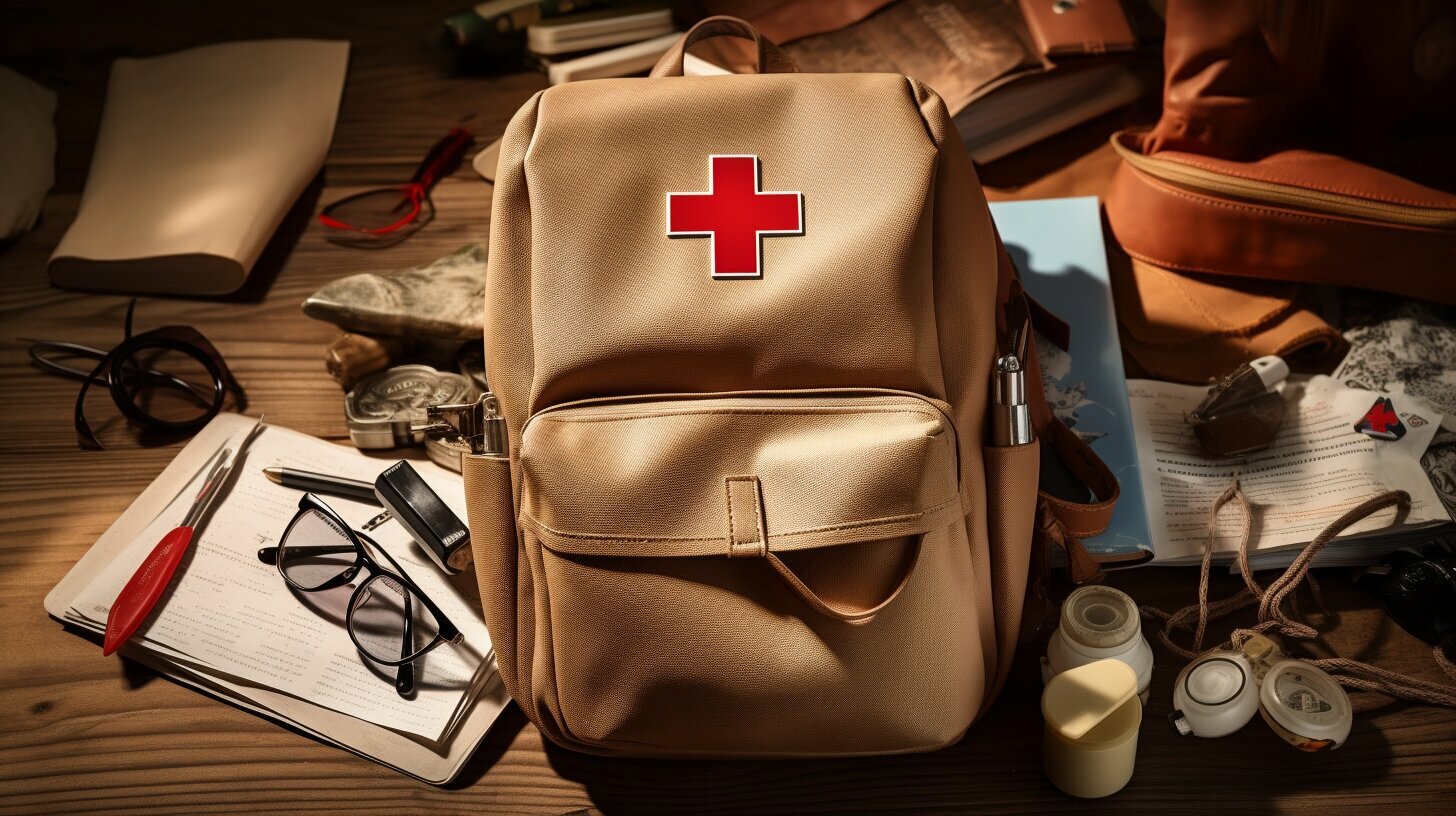When embarking on a journey, it is crucial for travellers to be prepared for any unexpected health situations. This comprehensive First Aid Kit Checklist for Travellers will help ensure your travel safety and health by providing a list of essential travel first aid items and other important travel essentials.
Travelling can be an exciting and enriching experience, but it is important to prioritize your health and well-being while on the road. Whether you are exploring a new city or venturing into the great outdoors, having a well-stocked first aid kit is essential. It allows you to manage basic health problems and avoid the risk of purchasing potentially dangerous medications abroad. By following this checklist, you can ensure that you have everything you need to stay safe and healthy throughout your travels.
The contents of your first aid kit should be tailored to your individual travel itinerary. Consider the activities you will be engaging in, the destinations you will be visiting, and any specific medical conditions you may have. A well-prepared kit may include items such as:
- First aid quick reference cards for easy access to essential medical information.
- Adhesive plasters to cover minor cuts and wounds.
- Gauze for dressing larger wounds.
- Antiseptic solutions or wipes to clean wounds and prevent infection.
- A thermometer to monitor your body temperature.
- Tweezers for removing splinters or foreign objects.
- Scissors for cutting tape or bandages.
For travellers with specific medical conditions, it is important to carry necessary medications and have extra supplies in case of unexpected delays. Consult with healthcare professionals before your trip to ensure you have a sufficient amount of medication and understand the proper management during your travel.
In addition to a well-stocked first aid kit, there are other considerations for travel health and safety. Medical alert jewellery can provide crucial information in case of emergencies for individuals with specific medical conditions. Water purification tablets can be handy in areas with questionable water quality. It’s also important to take measures to avoid insect bites and protect yourself from the sun’s harmful rays. Pack insect repellent and sunscreen to ensure a pleasant and safe travel experience.
In light of the ongoing COVID-19 pandemic, it is crucial to maintain safety and hygiene while travelling. Carry hand sanitizer to clean your hands when soap and water are not readily available. Additionally, pack extra face masks to reduce the risk of spreading the virus. Follow recommended guidelines and regulations to ensure a safe and enjoyable travel experience for yourself and those around you.
Remember to check the expiration dates of your medications regularly, follow dosing instructions, and discard any expired medications. It is also a good practice to periodically review and update your first aid kit contents to ensure that you are adequately prepared for any health emergency that may arise during your travels.
By following this First Aid Kit Checklist for Travellers and taking necessary precautions, you can enjoy your journey with peace of mind, knowing that you are prepared to handle any unexpected health situations that may arise.
The Importance of a First Aid Kit for Travellers
A first aid kit is an essential travel companion that allows travelers to manage basic health problems and avoid potential risks associated with purchasing medications abroad. It is important to have a well-stocked kit, tailored to your travel itinerary, with necessary first aid supplies, emergency kit items, and other essential medical supplies.
When travelling, unexpected health situations can arise, and it is crucial to be prepared. Carrying a first aid kit ensures that you have the necessary tools to address common travel health issues, such as minor cuts, scrapes, and insect bites. By having a well-stocked kit, you can promptly provide basic care and prevent these minor ailments from turning into more significant problems.
A comprehensive first aid kit should include items such as first aid quick reference cards, adhesive plasters, gauze, antiseptic, a thermometer, tweezers, and scissors. These supplies allow you to clean and dress wounds, take temperature readings, and handle other common travel health concerns. Additionally, it is essential for travelers with specific medical conditions to carry their necessary medications and have extra supplies in case of unexpected delays. Consultation with healthcare professionals is vital to ensure proper medication management during travel.
| Travel Packing List: Essential First Aid Kit Items |
|---|
| First Aid Quick Reference Cards |
| Adhesive Plasters |
| Gauze |
| Antiseptic |
| Thermometer |
| Tweezers |
| Scissors |
In addition to these essentials, other considerations for travel health and safety should also be taken into account. This includes carrying medical alert jewelry for individuals with specific medical conditions, using water purification tablets to ensure safe drinking water, taking measures to avoid insect bites, and protecting oneself from the sun’s harmful rays. For remote or high-risk travel, more advanced medical kits may be necessary.

During the ongoing COVID-19 pandemic, maintaining safety and hygiene is of utmost importance. Travelers should always carry hand sanitizer and extra face masks to reduce the risk of spreading the virus. It is crucial to follow recommended guidelines and regulations to ensure a safe travel experience for yourself and others.
Essential Items for a Travel First Aid Kit
A well-prepared travel first aid kit should contain a variety of essential items to manage common travel health problems. These include first aid quick reference cards, adhesive plasters, gauze, antiseptic, thermometer, tweezers, and scissors. The first aid quick reference cards provide easy-to-follow instructions for administering basic first aid, making them invaluable in emergency situations.
Adhesive plasters are essential for treating minor cuts, scrapes, and blisters. The gauze is used for larger wounds or as padding for splints. Antiseptic solutions or wipes can be used to clean wounds and prevent infection. A thermometer is crucial for monitoring body temperature, especially when traveling to areas with extreme weather conditions or during a pandemic.
Tweezers are handy for removing splinters or ticks, while scissors can be used to cut bandages or clothing in case of emergency. It is important to note that scissors with rounded tips are recommended to avoid accidental injuries. Including these items in your travel first aid kit ensures that you are prepared to handle a wide range of minor medical issues that may arise during your journey.
| Essential Items | Uses |
|---|---|
| First aid quick reference cards | Provides easy-to-follow instructions for administering first aid |
| Adhesive plasters | Treats minor cuts, scrapes, and blisters |
| Gauze | Used for larger wounds or as padding for splints |
| Antiseptic | Cleans wounds and prevents infection |
| Thermometer | Monitors body temperature |
| Tweezers | Removes splinters or ticks |
| Scissors | Cuts bandages or clothing in emergencies |

Having these essential items readily available in your travel first aid kit allows you to handle minor medical issues promptly and efficiently. Remember to check the expiration dates of all medications and replace any expired items. It is also important to follow dosing instructions and discard any unused medication appropriately.
If you have specific medical conditions, consult with healthcare professionals before your trip to ensure you have the necessary medications and extra supplies in case of unexpected delays. In addition to these essential items, it is advisable to consider carrying medical alert jewellery for individuals with specific medical conditions. Water purification tablets, insect bite avoidance measures, and sun protection are also important for maintaining your health and safety during your travels.
Lastly, in light of the ongoing COVID-19 pandemic, it is essential to prioritize safety and hygiene. Carry hand sanitizer and extra face masks to reduce the risk of spreading the virus. Follow recommended guidelines and regulations to ensure a safe travel experience for yourself and those around you. By being well-prepared and taking necessary precautions, you can enjoy your journey with peace of mind.
Medication Management for Travelers with Specific Medical Conditions
Travelers with specific medical conditions must give careful consideration to medication management to ensure their health and well-being during the journey. It is essential to carry necessary medications and have extra supplies in case of unexpected delays. Consulting healthcare professionals for medication management guidance is highly recommended.
When preparing a travel first aid kit, individuals with specific medical conditions should ensure they have an ample supply of their required medications. It is important to check expiration dates and ensure that medications are stored in appropriate conditions. Discard any expired medications and consult with healthcare professionals regarding any concerns or questions.
Having extra supplies of necessary medications is crucial, particularly on long trips or in remote locations where access to medical facilities may be limited. Additionally, it is advisable to carry a copy of prescriptions, a list of emergency contacts, and any necessary medical documentation to facilitate medical care or customs clearance if required.
Medication Management Tips:
- Always carry medications in their original packaging with the label intact.
- Ensure medications are stored in a cool, dry place, away from direct sunlight or extreme temperatures.
- Follow dosing instructions provided by healthcare professionals and adhere to prescribed schedules.
- Keep a written record of medication names, dosages, and any special instructions.
- Keep a list of emergency phone numbers, including the contact information for healthcare providers.
- Be aware of potential interactions between medications and any over-the-counter drugs or supplements.
Travelers with specific medical conditions should be proactive in their medication management to ensure a safe and healthy journey. By taking the necessary precautions and consulting with healthcare professionals, they can enjoy their travels with peace of mind, knowing that their health needs are being addressed.
| Medication | Dosage | Frequency |
|---|---|---|
| Insulin | As prescribed | Depends on individual needs |
| Asthma inhaler | As prescribed | Depends on individual needs |
| Blood pressure medication | As prescribed | Depends on individual needs |
| Allergy medication | As prescribed | Depends on individual needs |
Additional Considerations for Travel Health and Safety
In addition to a well-equipped first aid kit, there are other important considerations for travel health and safety. Carrying medical alert jewellery can provide crucial information in case of emergencies, while water purification tablets, insect bite avoidance measures, and sun protection are essential for a safe and healthy travel experience.
Medical alert jewellery, such as bracelets or necklaces, can help first responders and healthcare professionals quickly identify any underlying medical conditions or allergies that travelers may have. This information can be critical in providing appropriate and timely medical care. It is recommended to wear medical alert jewellery at all times during travel.
Water purification tablets are a valuable addition to any travel kit, especially when visiting areas with uncertain water quality. These tablets can effectively eliminate harmful bacteria and viruses, ensuring that the water you consume is safe and free from contaminants. Remember to follow the instructions provided with the tablets for proper usage.
When traveling to areas known for insect-borne diseases, it is important to take preventive measures to avoid mosquito bites. This includes using insect repellents that contain DEET or other EPA-approved ingredients, wearing long-sleeved clothing and pants, and using bed nets or screens when necessary. These precautions can greatly reduce the risk of contracting diseases such as malaria, dengue fever, or Zika virus.
| Item | Description |
|---|---|
| Medical Alert Jewellery | Bracelets or necklaces that provide crucial medical information in case of emergencies. |
| Water Purification Tablets | Efficiently eliminate harmful bacteria and viruses from water sources. |
| Insect Bite Avoidance Measures | Use of repellents, protective clothing, and bed nets to prevent insect bites. |
| Sun Protection | Applying sunscreen, wearing hats, and seeking shade to protect against harmful UV rays. |
In addition to these considerations, it is crucial to prioritize sun protection during travel. Remember to apply sunscreen with a high SPF, wear hats and sunglasses, and seek shade during peak sun hours. This will help prevent sunburns, heatstroke, and long-term skin damage caused by prolonged exposure to the sun’s harmful UV rays.
Summary:
- Carrying medical alert jewellery can provide crucial information in case of emergencies.
- Water purification tablets help ensure safe drinking water in areas with uncertain water quality.
- Insect bite avoidance measures, such as using repellents and protective clothing, reduce the risk of mosquito-borne diseases.
- Sun protection, including sunscreen, hats, and seeking shade, is essential to prevent sunburns and long-term skin damage.
By including these additional considerations in your travel preparations, you can enhance your safety and well-being throughout your journey.

In light of the COVID-19 pandemic, it is crucial for travelers to prioritize safety and hygiene. Carrying hand sanitizer and extra face masks is essential to reduce the risk of spreading the virus and maintain personal protection during travel.
Hand sanitizer acts as a convenient and effective method of cleansing hands when soap and water are not readily available. It should contain at least 60% alcohol to effectively kill germs. Regularly apply hand sanitizer before and after touching surfaces, using public transportation, or interacting with others.
Face masks are a vital component of travel safety during the pandemic. They help prevent the transmission of respiratory droplets, reducing the risk of both contracting and spreading the virus. It is advisable to carry extra masks in case of damage or the need for replacement.
Additionally, it is important to follow recommended guidelines and regulations to ensure a safe travel experience. Stay updated on travel advisories and restrictions, maintain social distancing, and adhere to hygiene practices such as frequent handwashing. By taking these necessary precautions, travelers can help protect themselves and others from COVID-19.
